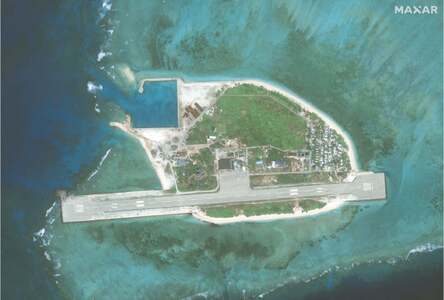MAPUTO: Mozambicans go to the polls on Wednesday as the impoverished and long strife-torn country stands on the cusp of reaping vast oil and gas wealth.
Frelimo, a once Marxist-Leninist party that has ruled since independence from Portugal in 1975, is almost certain to win. But it will emerge with a new president at the helm and, in all likelihood, a lower margin of victory.
The party’s nominee is little-known Filipe Nyusi, 55, who would be Mozambique’s first post-colonial leader with no liberation war credentials.
Nyusi would replace his mentor and outgoing president Armando Guebuza, 71, whose term in office was marked by rapid economic expansion. The southern African nation is forecast to see its gross domestic product expand by 8.3 per cent this year, according to the International Monetary Fund.
But it has been growth that has done little to curb ingrained poverty. The lack of improvement in living standards for ordinary Mozambicans has some calling for change.
“I have lived under colonial rule, saw independence come, and after 40 years of Frelimo government, we want change,” said Domingo Wate, a 60-year-old spice vendor.
“We are tired of this inhumane regime. They have no interest in people’s welfare, they only want to line their own pockets.” That sentiment could see Frelimo’s support drop from 75 per cent of voters in 2009 to around 60 per cent, according to analysts.
Frelimo’s civil war foe and main electoral rival, Afonso Dhlakama, 61, only emerged last month from the bush where he was holed up for two years as his supporters fought running skirmishes with government forces.
Renamo candidate too late?
Dhlakama’s Renamo party posters may be outnumbered by the bright red portraits of Nyusi plastered around the colonial seaside capital of Maputo, but in the centre of the country his rallies have drawn huge crowds.
But some, like former municipal councillor Issuf Mohamed, believe a lot of those supporters may not be registered voters because Dhlakama’s decision to run came so late.
There are serious questions about how Dhlakama will react if he does not do well in the vote, and analysts do not rule out the risk of low-level post-election violence.
Would-be president Nyusi will also have to defeat a relative new kid on the block, the centrist Mozambique Democratic Movement (MDM), founded just five years ago.
The MDM sprung a surprise in last year’s municipal elections, garnering 41 per cent of the votes in Maputo.
Its presidential candidate is Daviz Simango, 50, mayor of the second largest city of Beira.
Whoever wins the election will face a clamour for control of vast gas, oil and coal revenue.
“Competition for state power is intensifying due to growing opportunities to benefit from extractives wealth,” said Maplecroft risk analyst Charles Laurie.
The result will be closely watched by global investors who are pouring millions of dollars into the country.
Besides the presidential vote, the 10.9 million registered voters will also be electing 250 lawmakers.
Currently Frelimo enjoys an absolute majority in the legislature with 191 seats against Renamo’s 51 and MDM’s eight.
Mozambique, a country of 25 million people is ranked among the bottom 10 countries on the UN’s Human Development Index.—AFP
Published in Dawn, October 12th, 2014















































Dear visitor, the comments section is undergoing an overhaul and will return soon.